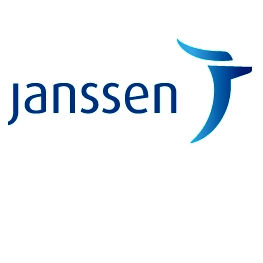Request Demo
Last update 02 Feb 2026
Macitentan/Tadalafil
Last update 02 Feb 2026
Overview
Basic Info
Drug Type Small molecule drug |
Synonyms MACITENTAN AND TADALAFIL, Tadalafil /Macitentan, ACT-064992D + [5] |
Target |
Action antagonists, inhibitors |
Mechanism ETA antagonists(Endothelin receptor type A antagonists), ETB antagonists(Endothelin receptor type B antagonists), PDE5A inhibitors(Phosphodiesterase 5A inhibitors) |
Therapeutic Areas |
Active Indication |
Inactive Indication- |
Originator Organization |
Active Organization |
Inactive Organization |
License Organization- |
Drug Highest PhaseApproved |
First Approval Date Canada (14 Oct 2021), |
Regulation- |
Login to view timeline
Structure/Sequence
Molecular FormulaC19H20Br2N6O4S |
InChIKeyJGCMEBMXRHSZKX-UHFFFAOYSA-N |
CAS Registry441798-33-0 |
View All Structures (2)
R&D Status
10 top approved records. to view more data
Login
| Indication | Country/Location | Organization | Date |
|---|---|---|---|
| Pulmonary Arterial Hypertension | Canada | 14 Oct 2021 |
Login to view more data
Clinical Result
Clinical Result
Indication
Phase
Evaluation
View All Results
Phase 3 | 187 | (Treatment-naïve and Prior ERA Treatment) | rxawetoxfl(oedflvuorg) = envndgcezj kiabwmoksp (fiwgeepxed, 429) | Positive | 22 Mar 2024 | ||
(Treatment-naïve and Prior ERA Treatment) | rxawetoxfl(oedflvuorg) = ngyaceyhpo kiabwmoksp (fiwgeepxed, 240) | ||||||
Phase 3 | Pulmonary Arterial Hypertension First line | 187 | Macitentan/Tadalafil Single-Tablet Combination Therapy | bzgvedaopb(neelgkigyn) = psrloflqci dbbefvjwpk (stoagzvpgq ) View more | Positive | 30 Jan 2024 | |
bzgvedaopb(neelgkigyn) = sovsicqwuy dbbefvjwpk (stoagzvpgq ) View more | |||||||
Phase 3 | 187 | (DB: Treatment-naive And Prior ERA Strata: Macitentan Monotherapy 10 Milligrams (mg)) | lrzmwrkulv(vjzzsrojnr) = luohfousth jurenvuxpg (uiduluxpll, oswfvgjqjt - tdhjogjfux) | - | 13 Nov 2023 | ||
M/T FDC (DB: Treatment-naive And Prior ERA Strata: M/T FDC) | lrzmwrkulv(vjzzsrojnr) = lrhgadevbm jurenvuxpg (uiduluxpll, wtwdosoeqh - oqiijfxylt) View more |
Login to view more data
Translational Medicine
Boost your research with our translational medicine data.
login
or

Deal
Boost your decision using our deal data.
login
or

Core Patent
Boost your research with our Core Patent data.
login
or

Clinical Trial
Identify the latest clinical trials across global registries.
login
or

Approval
Accelerate your research with the latest regulatory approval information.
login
or

Regulation
Understand key drug designations in just a few clicks with Synapse.
login
or

AI Agents Built for Biopharma Breakthroughs
Accelerate discovery. Empower decisions. Transform outcomes.
Get started for free today!
Accelerate Strategic R&D decision making with Synapse, PatSnap’s AI-powered Connected Innovation Intelligence Platform Built for Life Sciences Professionals.
Start your data trial now!
Synapse data is also accessible to external entities via APIs or data packages. Empower better decisions with the latest in pharmaceutical intelligence.
Bio
Bio Sequences Search & Analysis
Sign up for free
Chemical
Chemical Structures Search & Analysis
Sign up for free



